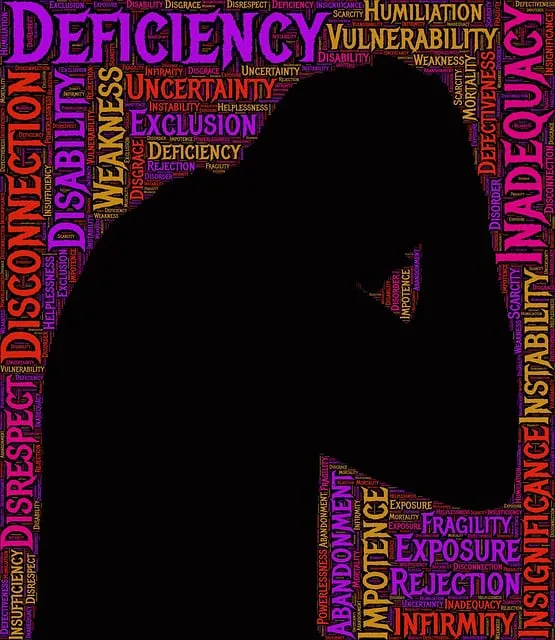Crisis Intervention Teams (CITS) at Kaiser Permanente Mental Health Boulder are revolutionizing mental healthcare by shifting from reactive to proactive management. Through holistic training, including workshops, role-play, and podcasts, these teams enhance care quality, reduce hospital admissions, and prevent provider burnout. Their comprehensive programs equip staff with advanced conflict resolution, stress management, and emotional resilience tools, leading to safer patient outcomes and improved team well-being in this bustling community.
In today’s healthcare landscape, effective crisis intervention teams (CITs) play a pivotal role in ensuring patient safety and enhancing mental health outcomes. This article explores the critical function of CITs, focusing on Kaiser Permanente Boulder’s innovative training programs. We’ll delve into the key components of successful training, benefits and challenges of implementation, and real-world success stories from within the organization. By examining these aspects, we aim to highlight best practices for improving crisis response in mental health settings, drawing insights from Kaiser Permanente Boulder’s comprehensive approach.
- Understanding Crisis Intervention Teams: Their Role and Impact in Mental Health Care
- Kaiser Permanente Boulder's Approach to Training Programs: A Comprehensive Overview
- Key Components of Effective Crisis Intervention Team Training
- Benefits and Challenges of Implementing Crisis Response Programs in Healthcare Settings
- Real-World Applications: Success Stories from Kaiser Permanente Boulder's Training Initiatives
Understanding Crisis Intervention Teams: Their Role and Impact in Mental Health Care

Crisis Intervention Teams (CITS) play a pivotal role in mental health care, particularly in communities like Boulder where organizations like Kaiser Permanente prioritize holistic well-being. These specialized teams are designed to provide immediate and effective support to individuals experiencing severe emotional crises, such as suicidal ideation or acute anxiety. By integrating CIT training into healthcare systems, there’s a significant shift towards proactive mental health management, moving away from traditional reactive responses.
This approach not only enhances the quality of care but also has profound effects on both patients and healthcare providers. Mental Health Policy Analysis and Advocacy highlights the necessity of such initiatives in reducing hospital admissions and emergency room visits related to mental health issues. Moreover, CITS contribute to Burnout Prevention Strategies for Healthcare Providers by offering a collaborative, supportive environment where professionals can better manage high-stress situations, ultimately leading to improved job satisfaction and patient outcomes.
Kaiser Permanente Boulder's Approach to Training Programs: A Comprehensive Overview

Kaiser Permanente Boulder takes a comprehensive approach to crisis intervention team training programs, focusing on both practical skills and emotional resilience. Their program integrates interactive workshops, role-playing scenarios, and debriefing sessions to equip healthcare providers with effective strategies for handling mental health crises. Beyond technical proficiency, Kaiser Permanente emphasizes the importance of self-care routine development for better mental health, recognizing that burnout prevention strategies are essential components of sustainable care.
The Mental Wellness Podcast Series Production at Kaiser Permanente Boulder further enhances training by offering ongoing educational resources and sharing real-life experiences. This multifaceted approach ensures that crisis intervention team members not only possess the technical skills to navigate complex situations but also cultivate a robust mental wellness foundation, enabling them to support both patients and themselves during challenging times.
Key Components of Effective Crisis Intervention Team Training

Effective crisis intervention team (CIT) training programs are multifaceted and tailored to equip healthcare professionals with essential tools for handling mental health crises, particularly in environments like Kaiser Permanente mental health facilities in Boulder. The key components include comprehensive conflict resolution techniques that allow providers to de-escalate situations while prioritizing patient safety. CIT training also focuses on fostering inner strength development, ensuring healthcare workers can maintain resilience in high-stress settings and prevent burnout, a significant concern among front-line staff.
Moreover, these programs delve into effective communication strategies, stress management techniques, and the recognition of mental health triggers. By integrating evidence-based practices and creating supportive learning environments, CIT training equips teams to handle crises with confidence and empathy, ultimately enhancing patient outcomes and provider well-being in challenging healthcare settings.
Benefits and Challenges of Implementing Crisis Response Programs in Healthcare Settings

Implementing crisis response programs in healthcare settings offers numerous benefits. For instance, training programs like those provided by Kaiser Permanente Mental Health Boulder equip healthcare providers with essential tools to handle mental health crises effectively. This enhances patient safety and outcomes, reduces the risk of self-harm or harm to others, and improves the overall quality of care. Moreover, such initiatives foster a culture of resilience and support within healthcare teams, mitigating burnout—a significant concern among healthcare professionals due to high-stress environments and heavy workloads.
However, challenges exist when integrating crisis response programs. These include organizational resistance to change, lack of dedicated resources, and the need for continuous training and support to ensure providers remain proficient. Mental wellness coaching programs can play a pivotal role in addressing these obstacles by offering burnout prevention strategies tailored to healthcare providers’ unique experiences. Development of such coaching initiatives should consider the dynamic nature of healthcare settings, ensuring they are adaptable and accessible to all staff members.
Real-World Applications: Success Stories from Kaiser Permanente Boulder's Training Initiatives

At Kaiser Permanente Mental Health Boulder, we’ve seen firsthand how effective crisis intervention team (CIT) training can be in transforming communities and saving lives. Our innovative training initiatives focus on empowering individuals with Mind Over Matter Principles, fostering Emotional Intelligence, and teaching Stress Reduction Methods. These programs have led to remarkable success stories across various settings, from schools to workplaces and community centers.
By equipping participants with the necessary tools and confidence, our CIT training has proven to reduce crisis incidents significantly. We’ve witnessed an increase in early intervention and de-escalation techniques, leading to safer environments and improved outcomes for at-risk individuals. These success stories not only highlight the impact of specialized training but also underscore the importance of emotional resilience and effective communication in managing crises effectively.
Kaiser Permanente Boulder’s commitment to mental health care is evident through their comprehensive crisis intervention team training programs. By focusing on evidence-based practices and leveraging real-world applications, they’ve not only enhanced the skills of their staff but also improved patient outcomes. The successful implementation of these programs underscores the significant impact effective crisis response can have within healthcare settings. As we navigate the complexities of mental health support, such initiatives serve as a model for organizations worldwide, highlighting the power of investment in Crisis Intervention Team training to foster safer, more compassionate environments.






